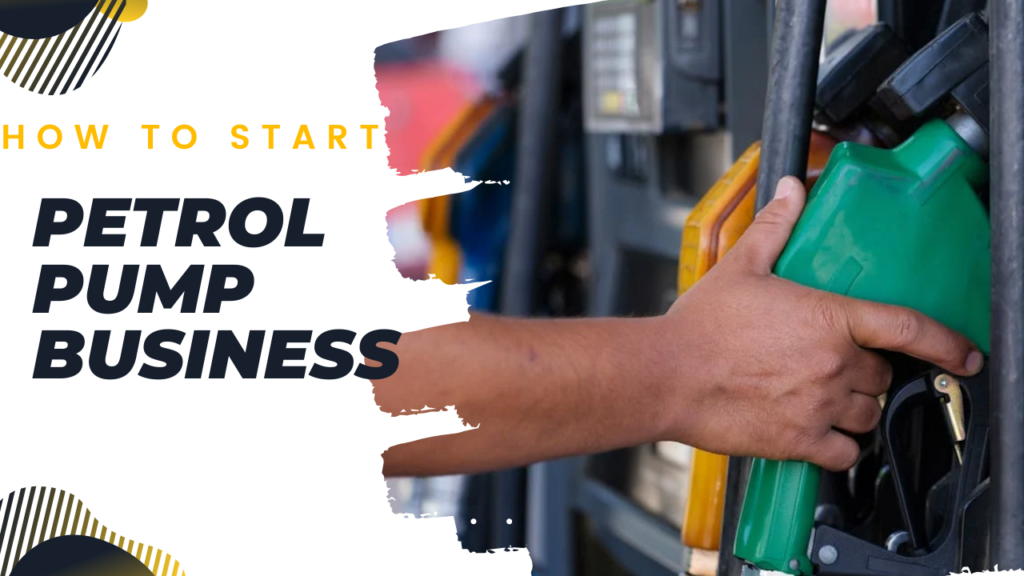Starting a petrol pump business has always been considered one of the most profitable ventures, both in India and globally. This is largely due to the constant growth and resultant demands of the transportation and logistics sector. Additionally, the daily commute needs of the general public contribute significantly to the demand for fuel. Nowadays, it has become almost a necessity for a middle-class person to own a vehicle for convenience and comfort in day-to-day life.
Given these factors, starting a petrol pump business is a viable option in today’s times. Although it requires substantial legal procedures and paperwork, it remains one of the most lucrative businesses in India. Moreover, Oil Marketing Companies (OMCs) are creating more opportunities to encourage the establishment of petrol pumps in India for 2023-2024.

Table of Contents
1. Eligibility Criteria for Opening a Petrol Pump in India
The Government of India has set specific criteria that must be met before anyone can start the process of opening a petrol pump business:
Citizenship:
The owner(s) must be Indian citizens. NRIs must have resided in India for more than 182 days.
Age Limit:
The applicant must be between 21 and 55 years old.
Education:
- Rural areas: Minimum 10+2 certification.
- Urban areas: A university degree recognized by UGC.
- CC1 category: Minimum 10th certificate.
- CC2 category: Minimum 10+2 certification.
Freedom Fighter Category:
Applicants from this category are exempt from the educational requirements.
Investment:
- Rural areas: Minimum of Rs 15 lakh.
- Urban areas: Minimum of Rs 2 crore.
Location:
The business location must not fall under excluded or blacklisted zones.
2. Land Requirement
Selecting the right land is crucial. The land must be chosen as per the guidelines of the petrol companies, which usually advertise sanctioned land locations.
- Ownership: The land must be either owned by you or leased for the period agreed upon by the oil dealership.
- Documentation: Ensure all legal documents of the land are in place for verification.
- Area: The land should be between 800 sq meters to 2000 sq meters, depending on the location.
- Accessibility: The land must be developed, leveled, and easily accessible from the road.
3. Investment and Fees
Starting a petrol pump business requires substantial investment. There are two primary charges:
- Rural Outlets (ROs): Rs 12 lakhs.
- Urban Outlets (ROs): Rs 25 lakhs (amount may vary by company).
Acceptable Investment Modes:
- National Savings Certificates
- Bonds
- Shares of listed companies in Demat form
- Mutual funds
- Savings account funds
- Bank deposits
Non-Acceptable Investment Modes:
- Cash
- Jewellery
- Current account balance
4. Application for License
To obtain a license for opening a petrol pump, follow these steps:
- Advertisement: OMCs advertise openings on their official websites or newspapers.
- Form Purchase: Buy a form for Rs 100 (rural) or Rs 1000 (urban) online.
- Application Submission: Fill in your personal ID, mark sheets, and land details, and upload the required documents on the chosen oil company’s website.
- GSTIN and Bank Account: Once licensed, obtain a GSTIN number and open a current account in the petrol pump’s name.
5. Obtaining Certificates
Before constructing the petrol pump infrastructure, you must obtain several certificates and permissions:
- Municipal Corporation and Fire Safety Office Permission
- No Objection Certificate (NOC) from licensing and other concerned authorities
- Location Certificate
6. Obtain a Business Loan for Working Capital Needs
You can secure loans from banks, NBFCs, or digital NBFCs like Lendingkart. At Lendingkart, we offer:
- Loans ranging from Rs 50,000 to Rs 2 crore
- Short processing times
- Repayment periods up to 3 years
- Flexible installment options
- Quick disbursal
- Low-interest rates
- 3-step loan application: Submit an application on our official website, upload the required documents, and get your loan sanctioned!
7. Rural Areas
Expanding a petrol pump business in rural areas presents unique opportunities and challenges:
- Market Potential: Rural areas often lack convenient access to fuel stations. The demand is driven by agriculture, transportation, and small-scale industries.
- Community Engagement: Building trust within rural communities is essential. Engage with local leaders and residents to understand their needs and expectations.
- Infrastructure and Accessibility: Invest in reliable backup power systems and robust storage facilities. Ensure ease of access for farmers and local businesses by strategically locating petrol pumps near key transportation routes.
- Environmental Responsibility: Implement eco-friendly practices, including spill prevention and waste disposal, to minimize environmental impact.
8. Urban Areas
Entering urban areas offers several advantages:
- High Demand: Urban areas have a constant and significant demand for fuel. Strategically locate petrol pumps in densely populated areas and near major transportation hubs.
- 24/7 Operations: Urban areas often operate around the clock. Offer convenience by running petrol pumps 24/7.
- Competitive Landscape: Differentiate by offering quality fuel and additional services such as car washes, convenience stores, and clean restroom facilities.
- Evolving Trends: Implement innovative payment solutions and provide cleaner fuel options like biofuels and electric vehicle charging stations.
- Safety and Security: Ensure robust security measures, including surveillance systems and well-trained staff.
9. National Highways
Petrol pumps along national highways are a critical component of the business plan:
- Strategic Locations: Identify and secure locations along major national highways, focusing on areas with limited existing petrol pumps.
- Convenience and Accessibility: Prioritize convenience for travelers and truckers with adequate signage, spacious refueling areas, clean restroom facilities, and stocked convenience stores.
- Fuel Quality and Variety: Emphasize the quality of fuel products and offer a variety of options, including diesel, gasoline, and alternative fuels like compressed natural gas (CNG).
- Safety and Emergency Services: Equip petrol pumps with basic first-aid kits, fire extinguishers, and emergency contact information to assist in case of accidents or breakdowns.
Petrol Pump Business Plan FAQs:
Q1. What is the minimum investment one may require starting a Petrol Pump business?
Q2. Who are the top dealers of Petrol pumps in India?
Q3. How does a petrol pump operate?
Q4. How do I write a petrol station business plan?
How to Start a Hotel Business in India step Guide ⬇️



